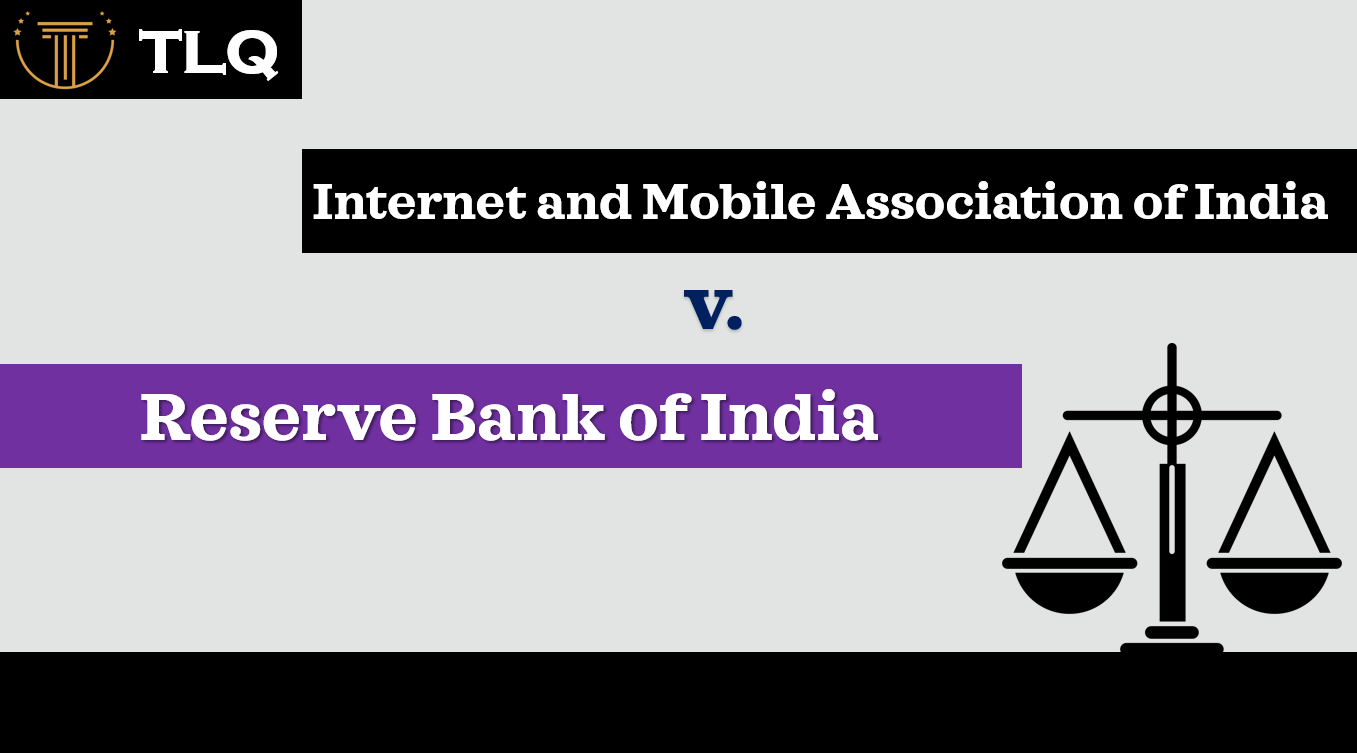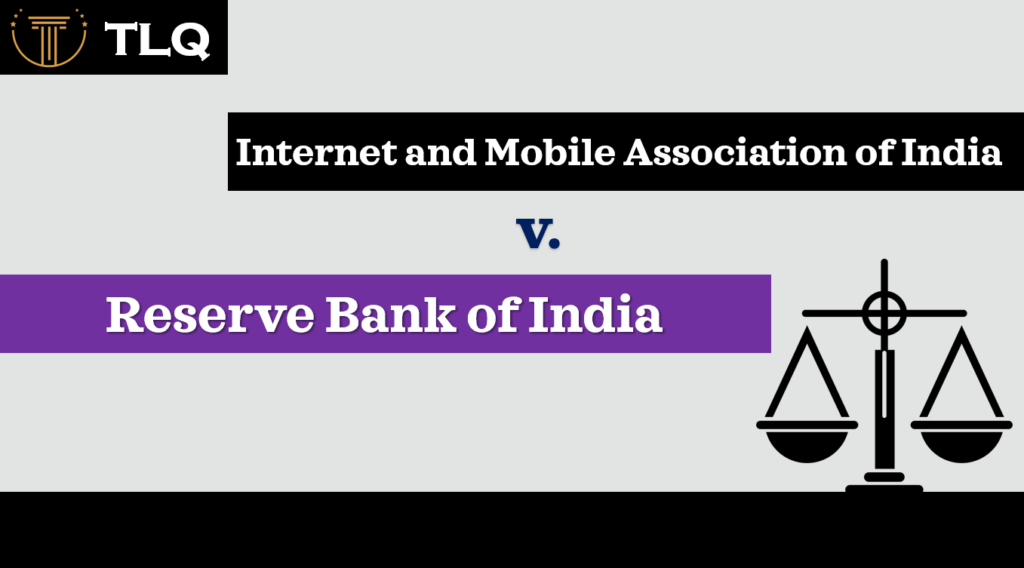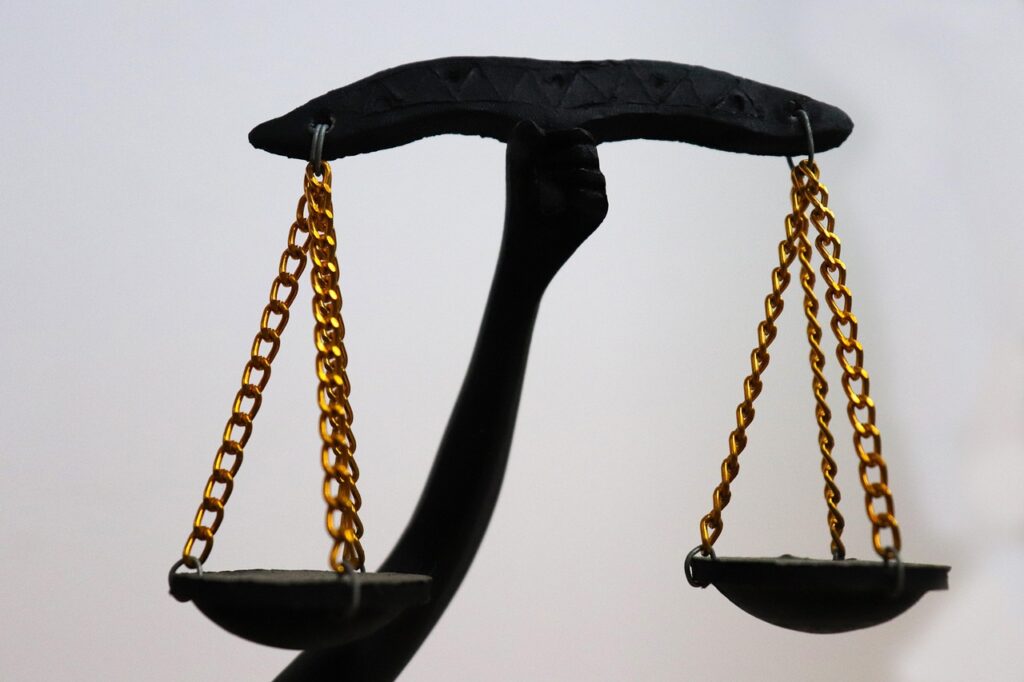Published On: 17th April, 2024

Introduction –
Digital currency is a form of currency that is available only in digital and electronic modes. All cryptocurrencies are digital currencies. Since their introduction in 2009, cryptocurrencies have grown from digital novelties to trillion-dollar valuations. Bitcoin and various other cryptocurrencies are used as currencies to buy assets and make investments. Cryptocurrencies are decentralised, virtual currencies with no central administrating authority. These currencies are protected by cryptography.
These currencies have caused quite a stir globally, as they have given rise to a new set of challenges for governments to comply with including concerns over criminal acts, environmental distress, and consumer protection. Around 2013, Bitcoin started gaining more attention in India. However, in 2018 the Reserve Bank of India’s circular made virtual currency an issue that was discussed in the Supreme Court. This case summary elaborates on one of the landmark judgments of the Supreme Court in Internet and Mobile Association of India (IAMAI) vs Reserve Bank of India (RBI), 2020 [1] which shed light on the legal status of cryptocurrencies and their position in the Indian economy and industrial markets.
Facts –
On 5th April 2018, the Reserve Bank of India issued a press release, raising concerns about consumer protection from trade in virtual currencies. The RBI was of the view that trading in virtual currencies also referred to as cryptocurrency is prone to hacking, and therefore it will lead to money laundering, terrorist activities, and other illegal acts.
On 6th April 2018, the RBI issued a circular that directed banks across India to stop dealing in any virtual currencies and to not provide any services to any such companies who are dealing in the same. This circular also directed banks to exit or terminate a relationship with all those companies and individuals who are trading in virtual currency.
Paragraph 13 of the said circular directed entities regulated by RBI to – “Not deal with or provide services to any individual or businesses or entities dealing with virtual currencies and to exit relationship if they already had one with such individuals.”
The RBI directed banks to not maintain accounts, register, trade, settle, clear, or give loans against virtual currency, accept virtual currencies as collateral, and open accounts on exchanges dealing with them or transfer for sale or purchase virtual sales.
The Internet and Mobile Association of India filed a petition in the Supreme Court challenging the circular issued by the RBI.
Issues-
The following issues were raised in this petition –
Whether the RBI has the jurisdiction to pass such a circular?
Whether trading in Cryptocurrency and dealing with it amount to a legal business activity?
Whether virtual currency amount to money?
Whether an outright ban on trading in cryptocurrency was the only way to protect against the threats posed by it?
Arguments –
Petitioner –
The petitioner contended that the RBI does not have the jurisdiction to forbid the trading of virtual currency, because these currencies are not legal tenders, but tradable digital commodities, which do not fall under the Reserve Bank of India Act, 1934 [2] and Banking Regulations Act, 1949.[3]
The petitioner also stated that all other stakeholders like the Ministry of Finance, Security and Exchange Board of India took trading in cryptocurrencies in a positive manner but RBI is the only body that has issued such a ban.
The petitioner also contended that the RBI should have considered institutions like the Internet and Mobile Association of India, taken all the requisite measures, and ensured the compliance of all the norms and other confirmed parties before enacting such a ban.
The petitioner argued that the fundamental right to practice trade and commerce freely granted to all citizens under Article 19(1)(g)[4] of the Constitution was violated by RBI.
Respondent –
The respondent contended that the virtual currency in question fails to qualify the parameters of being a currency. They are neither a store of value, a medium of exchange, nor a unit of measurement.
The respondent also argued that these currencies could be used for illegal transactions and activities like terrorism, which can threaten national security. They can also threaten the stability of the Indian economy as such currencies do not have accountability or redressal capacity as they are unregulated.
The respondent also argued that they had not violated any fundamental right as they had the capacity to warn the public and investors against security threats. They further argued that the step was taken to protect the general public from the volatile market of Cryptocurrency.
The respondent concluded by stating that the steps taken by them are within their powers, given to them by the Reserve Bank of India Act, 1934 the Banking Regulations Act,1949, and the Payment Settlement Systems Act, 2007.[5]
Judgment –
The petition was subject to judgment by a bench of three judges – J. Rohinton Fali Nariman, J. Aniruddha Bose, and J. V Ramasubramanian. The judgment was announced on 4th of March 2020.
The Supreme Court held that, while the RBI had the power to take note and deal with virtual currency, the prohibition of the same was excessive of its powers and it also harmed legitimate trade practices. It also held that the RBI did not intend to show any harm to regulated entities, and was only trying to facilitate trade against any defects in the functioning of virtual currency.
In its judgment, the Supreme Court stated that an outright ban on virtual currencies would be a disproportionate measure to regulate them. It was also held that the ban was unconstitutional, as it was indeed a violation to carry on trade and commerce guaranteed by Article 19(1)(g) of the Indian Constitution.
The court also mentioned the report of the Interministerial Committee which was constituted to formulate a framework for the Crypto Token Regulation Bill, 2018. This report stated that initiating a ban on trading in virtual currency was an extreme step and the objective of the RBI could have been achieved by any other regulatory mechanisms.
The court referred to the case– State of Maharashtra vs Indian Hotel and Restaurant Association [6], In this case, the court held that there must be at least some empirical data about the degree of harm suffered by the entities regulated. Thus, since RBI failed to show any harm caused to the entities regulated by it due to trading in virtual currencies, RBI could not enact such a ban.
The court did not declare virtual currency as legal tender and only accepted its status as one of the means of trade or virtual assets. While affirming the concerns of the RBI, the court emphasized the need for proportionate regulatory measures as a solution, rather than an outright ban.
Concluding the judgment, the court stated that it was true that RBI had wide powers, not only in statutory regulation but also had a special role in the economy of the country. These powers could be exercised by the RBI in a preventive form as well. However, there is a manner and extent to which it can be exercised.
The practitioners were entitled to succeed and the said circular of 06th April 2018 is liable to be set aside on the grounds of proportionality,
Reasoning –
The Supreme Court lifted the ban on trading in virtual currencies placed by the RBI. However, the main concerns of the RBI regarding virtual currencies being decentralized and unregulated by any statutory authority were not addressed.
Since the court set aside the case on the grounds of proportionality, which is a standard of judicial review defined in the State of Madras vs V.G.Row,[7] as “the nature of the right alleged to be infringed, the underlying purpose of restrictions imposed the extent and urgency of the usual sort to be remedied, thereby the disproportion of the imposition the prevailing conditions at the time, should all enter into the judicial verdict”. This is known as the Doctrine of proportionality.
Since the definition takes into consideration the underlying purpose of restrictions, it can be said that the underlying purposes of the RBI have still not been addressed. There is no regulation to date, which regulates virtual currencies in India. The Supreme Court made a progressive judgment by not allowing the ban on social currencies and allowing them to be used for trade and commerce investments and asset development. However, the country as well as other dealers are yet not protected from the threats that such a virtual currency may possess. The decision of the Supreme Court in itself is true to the nature of law however the lack of any regulations makes the judgement incomplete.
Other countries like the USA, El Salvador, and the Western Union widely support virtual currency and its forms. The concept of decentralized finance is yet to be widely supported by the Indian government. At the same time, there is a need to release regulations that would guard against the illicit activities that could be committed by the use of Cryptocurrency.
Conclusion –
This case highlighted the need for balancing new technological inventions with financial stability. It became a matter of discussion at every table in the Fin-tech markets of the country. It also created a scalable amount of awareness about virtual currencies among the masses.
India is a developing country whose economy is yet not stable enough to support virtual currencies. The regulations and other important guidelines that could protect the economy from threats imposed by virtual currencies and also let the general public get benefits from the use of such currencies are lacking. To limit illicit activities there has to be a statutory authority which has to be involved in such virtual currencies and their transactions. Thus, till the time India is stable enough to deal with virtual currencies not providing them with a legal stance but at the same time allowing the transactions is the right way to be.
Footnotes
[1]https://main.sci.gov.in/supremecourt/2018/19230/19230_2018_4_1501_21151_Judgement_04-Mar-2020.pdf
[2] – https://rbidocs.rbi.org.in/rdocs/Publications/PDFs/RBIA1934170510.PDF
[3] – https://rbidocs.rbi.org.in/rdocs/Publications/PDFs/BANKI15122014.pdf
[5] – https://rbidocs.rbi.org.in/rdocs/Publications/PDFs/86706.pdf
[6] – https://indiankanoon.org/doc/38033723/
[7] – https://main.sci.gov.in/jonew/judis/1138.pdf
References
Reserve Bank of India https://www.rbi.org.in/ last visited 20/12/2023
Bar and Bench https://www.barandbench.com/columns/the-bitcoin-judgment-a-contrarian-view last visited 20/12/2023
Drishti IAS https://www.drishtiias.com/daily-news-editorials/supreme-court-on-cryptocurrency last visited 20/12/2023
Into Legal World https://www.intolegalworld.com/article?title=case-analysis-on-internet-and-mobile-association-of-india-vs-reserve-bank-of-india last visited 20/12/2023
Council on Foreign Relations https://www.cfr.org/backgrounder/cryptocurrencies-digital-dollars-and-future-money last visited 20/12/2023
Legal Service India https://www.legalserviceindia.com/legal/article-3912-internet-and-mobile-association-of-india-v-reserve-bank-of-india.html last visited 20/12/2023





